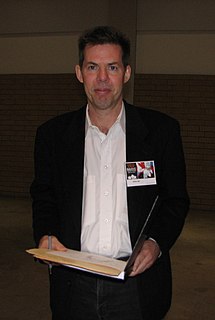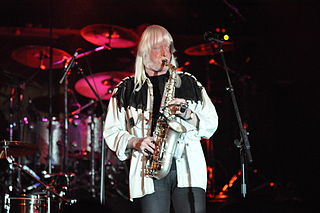A Quote by Dave Sim
Once a profound truth has been seen, it cannot be 'unseen'. There's no 'going back' to the person you were. Even if such a possibility did exist... why would you want to?
Related Quotes
Why would scientists dedicated to uncovering the truth about the natural world deliberately misrepresent the work of their own colleagues? Why would they spread accusations with no basis? Why would they refuse to correct their arguments once they had been shown to be incorrect? And why did the press continue to quote them, year after year, even as their claims were shown, one after another, to be false?
I did not want to move. For I had the feeling that this was a place, once seen, that could not be seen again. If I left and then came back, it would not be the same; no matter how many times I might return to this particular spot the place and feeling would never be the same, something would be lost or something would be added, and there never would exist again, through all eternity, all the integrated factors that made it what it was in this magic moment.
Everybody is looking with his own world of desires, expectations, passions, lust, greed, anger. There are a thousand and one things standing between you and your world; that's why you don't ever see it as it is. Once your eye is completely clean, clean of all the dust, once it becomes a pure mirror, it reflects that which is. And that is truth and truth liberates, but it has to be your own. My truth cannot liberate you, Buddha's truth cannot liberate you. There is only one possibility of liberation, that is your own truth. And all that you have to do is to create a dispassionate eye.
When I decided to write about my brother and friends, I was attempting to answer the question why. Why did they all die like that? Why so many of them? Why so close together? Why were they all so young? Why, especially, in the kinds of places where we are from? Why would they all die back to back to back to back? I feel like I was writing my way towards an answer in the memoir.
I've done and said a lot of things when I was younger that I don't know if I even understood what I was doing or why I was doing it. There's a lot of compassion in understanding what people go through and even in trying to understand why a person would act the way they do. I was a very reactive person, and I did things that were just really bizarre; I don't think people understood it at all.
I have sometimes, probably, forgotten - and I know I have - to pat the back of someone or said thank you enough times or maybe even once sometimes I wish I were perfect. I wish I were just the nicest, nicest, nicest person on Earth. But I am a business person.If I were a man no one would ever say that I was arrogant.
At the very outset I have to tell you that truth is what it is. You cannot mold it, you cannot change it. It is always the same. It has been the same, it is the same, it will be the same. But to say that we know the truth and that we have the truth is really a self-deception. If you had known the absolute truth there would have been no problems and everybody would have said the same thing. There would be no discussions, no arguments, no fights and wars. But when we don't know the absolute truth then we can find out our own mental conceptions as the truth. But this mind is so limited.
What I'm suggesting is we are going to look back, and we're going to see what happened in Syria, and we're going to see the larger destabilization of the Middle East, the rise of extremism, and we're going to wonder... Why didn't we at least try to force a political solution - at an acceptable cost to us, because no one is saying we should send in ground troops - and if we did it would be worse than doing nothing... If we do not act, we are going to look back and wonder why we didn't.
It is sometimes said that one of the casualties of the general suspicion and mistrust that permeated the old Soviet Union was that the distinction between truth and other motivations to believe tended to break down. Upon hearing a purported piece of information, the reaction was not 'Is this true?' but 'Why is this person saying this? - What machinations or manipulations are going on here?' The question of truth did not, as it were, have the social space in which it could breath.



































